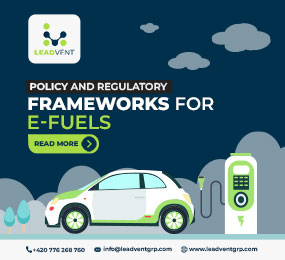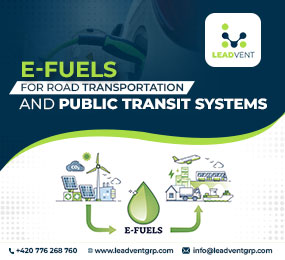Over the years, the transportation industry, entailing aviation, shipping, and others, has remained the one major contributor to the rising rate of pollution. To shed the burden of pollution, the transportation industry in the current time is inclining towards alternative fuel solutions.
E-fuel, or synthetic fuel in reality, is paving the path for an emission-free future. And deviating from the traditional path, this form of fuel is offering an alternative to the transportation sector as a whole. This blog is aimed at diving deep into strategic knowledge regarding e-fuels and pointing out the exact impact of it on the transportation sector.
Overview of the Global E-fuel Industry
As per recent statistical data, the global market size of e-fuel is anticipated to grow 49.4 billion USD by 2030. This piece of data is a clear enunciation of the active efforts of the governmental bodies across the countries to switch to e-fuels for a greener tomorrow.
E-fuel is still relatively a new concept on which more research endeavours are required. On the other hand, the European Union, or EU, has already committed to invest €14 billion on the commercialisation process of e-fuel. Here the noble motive remains to support the EU's target of a net-zero economy in the upcoming years.
The Government of the United States has not lagged behind and offered funding of $100 million for ceaseless research and development on e-fuel. Even in the Eastern Zone, the Japanese government is coming up with subsidies for production and scaling of e-fuel.
Impact of E-fuel on Transportation Industry
As electrofuels are derived from electrolytic hydrogen, it has the potential of opening up new avenues. In addition to that, it can also help the transportation sector to shed the burden of carbon and greenhouse gases.
Here are some of the prominent impacts of e-fuel on the transportation sector. Let's take a look here,
Diversification of the fuel options
As e-fuels are free from the carbon components, it in reality is opening up the wide scopes of diversification. These alternative forms are like e-gasolene, e-hydrogen-based fuels, e-kerosene, and others. In the World E-Fuel Summit 2024, the knowledge sharing among the industry leaders, experts, and stakeholders is expected to enlighten the producers about new diversification strategies regarding this fuel.
Wide-spread adoption
Ranging from the maritime industry to the aviation and road transport sectors, e-fuel is the only reality. All these sectors are gradually relying on this form of renewable fuel for accelerating the overall process of decarbonisation.
Reducing the scopes of environmental pollution
Fewer miles drive means a load of emissions when it comes to the traditional fossil fuels. But with the synthetic fuel in cars, a 44% decrease in emissions is witnessed, and it is this more effective in comparison to the other forms readily available in the market.
Case Study
European Legislation
The EU, driven by its lofty aim of revolutionising the transportation sector, has supported the growth of e-fuel. EU has strategically designed ReFuelAviation and FuelEU Maritime regulations to oust the incumbent fuel options. RNFBO, in reality, to encourage the production of e-fuel and to mandate its usage is compelling the producers to accomplish this task.
Under the regulation of FuelEU Maritime, the penalties will be applied if the GHG targets are not entirely met. This case study clearly reveals the growing degree of consciousness of the transportation industry. At the same time, it reveals about the governmental endeavour to add to the preponderance of e-fuel.
FAQs
- How does e-fuel reduce carbon emissions?
E-fuel production is all about capturing the carbon dioxide and converting it into synthetic fuels. This process, in reality, takes part in the reduction of GHG emissions, waging war against environmental pollution.
- What is the impact of e-fuel on the transportation industry?
E-fuel is infused with the potential of decarbonising significant sectors like maritime and aviation. In this manner, it is mainly encouraging the transportation sector to stay ahead in the race by shedding the share of pollution.
- What are the future possibilities for e-fuel in the transportation sector?
From diversification to cost-cutting and carbon neutrality, e-fuel is going to emerge as the viable solution.
- Can e-fuel be used in all types of internal combustion engines?
Absolutely, e-fuel can be used in every type of internal combustion engine without the slightest modification in it.
Bottom Line
The impact of e-fuel on the transportation sector is no less than a blessing. In the coming time, e-fuel may shape the trajectory of transportation in a progressive manner by reducing the reliance on the emission-producing agents. To become a part of the thought-provoking discussion regarding e-fuel or to get updated insights about it, follow the page of Leadvent Group. Or else, you can reach out to us to get details of the World E-Fuel Summit, 2024.












